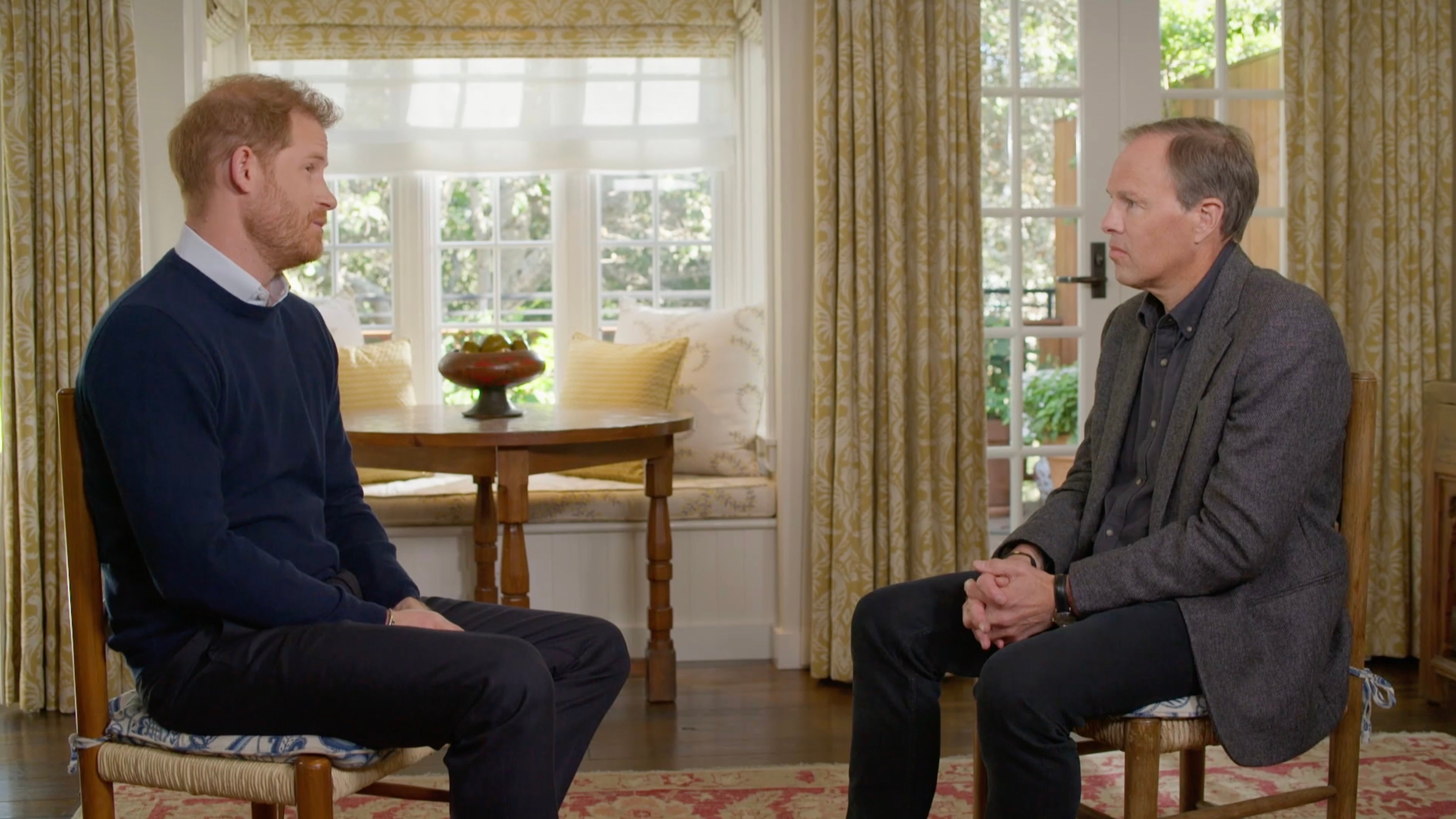The prince, the press and a misguided mission
Editorial: It is one thing to make litigation a destination of first resort in the case of unfavourable or unfair stories about yourself. It is quite another to seek meaningful reform or regulation of an entire industry

Prince Harry made clear in his interview with ITV’s Tom Bradby that he is fighting a war on multiple fronts. In the now-open conflict with his family, he claims to be seeking reconciliation. In his war with the British press, however, he appears hell-bent on annihilation.
He described “the mission of changing the media landscape in the UK” as his “life’s work”. But he stopped short of explaining quite what he meant.
Harry and his wife Meghan Markle have initiated a number of legal cases since their effective exit from the royal family three years ago, almost all of which are against newspapers and picture agencies.
His refusal to enter into any kind of reciprocal arrangement with tabloid newspapers, to “get in bed with the devil”, as he put it, is also at the heart of his fall-out with the rest of his family, whom he accuses of doing exactly this.
He also argued that what he perceives to be the mistreatment of his new family by certain British newspapers is an attempt at “retaliation”. He said he was still awaiting the outcome of phone-hacking claims, made three years ago, and that in the meantime, the tabloid press was ”trying to intimidate me to settle rather than take it to court and potentially they have to shut down”.
The prince has not yet elaborated on how exactly he intends to fulfil his mission. It is one thing to make litigation a destination of first – not last – resort in the case of unfavourable or unfair stories about yourself. It is quite another to seek meaningful reform or regulation of an entire industry. And it is also highly questionable whether general democratic values, and the free speech rights that underpin them, would be improved through the intervention of an angry prince based in California.
Harry’s actions in the past few months have been consistently branded hypocritical. That, for example, he claims to fear for his family’s safety in the wake of consistent press intrusion into their private lives, yet at the same time he has done more than possibly any royal before him to offer up his private life for public consumption, and for immense personal financial gain.
If Harry wants to tell his story on his own terms, and if he chooses to do so via six hours of Netflix documentary, three hours of sit-down interviews and a very long, unsparing book, then he has the right to do so. But he must surely be aware that he has simply slipped into bed with a different devil. There is little difference between choices made by his father, or his brother, to give the British press what they want, offering up endearing pictures of their young children, for example, and his own choice to do precisely the same with Netflix.
If his comments about a “life mission” offer scant details of his proposal for the future of the press, his legal battles, disjointed as they are, also offer little insight. In one such battle, he is taking action against the Home Office for denying his family police protection while in the UK, despite his offer to pay for such protection himself. (The Home Office has pointed out that the police is not a security firm that can be privately hired.) He is also suing The Mail on Sunday for the way in which it reported the news of this court case. Separately, he is part of a group action against Associated Newspapers, publisher of the Daily Mail and The Mail on Sunday, over allegations of phone hacking – claims denied by the group.
In another, his family is not the plaintiff but the defendant. Meghan Markle’s half-sister, Samantha Markle, is suing her for defamation with regard to comments made in the couple’s interview with Oprah Winfrey. The Duchess of Sussex’s lawyer said last year: “This baseless and senseless lawsuit is just the continuation of a disturbing pattern of behaviour. We will give it the minimum necessary attention.” Again, it is not clear how the prince’s mission to change the media landscape applies on occasions where he and Meghan are accused of being perpetrators rather than victims of false statements.
On a human level, the prince’s standpoint is easy to understand. It is clear that he believes the horrific death of his mother was the fault of the media industry at large – conflating the appalling behaviour of paparazzi and the red-tops with broadsheets and broadcasters alike – and Harry is not prepared to do as his brother and father have done, to overlook it, and to continue going along with their demands.
But, as Tom Bradby put to him, the media is not the amorphous blob he appears to imagine. And the devil may not look quite so devilish when it is waving a hundred-million-dollar cheque at you.



Join our commenting forum
Join thought-provoking conversations, follow other Independent readers and see their replies
Comments